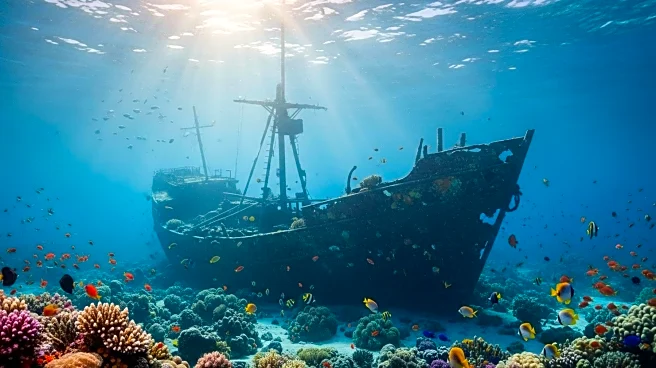What's Happening?
New Zealand has agreed to pay 10 million Samoan tala ($3.6 million) to Samoa as compensation for a navy ship that ran aground and sank off the coast of Upolu, Samoa's second-largest island, in October 2024. The incident involved the HMNZS Manawanui, which was conducting a survey of the reef when it went off course due to crew errors and a lack of training. All 75 people on board were safely evacuated before the ship caught fire and sank. The wreck remains at the site, and New Zealand is working with Samoan authorities to decide its future. The compensation, announced by New Zealand's foreign minister Winston Peters, is intended to address the environmental and community impact of the sinking.
Why It's Important?
The compensation is significant as it addresses the environmental and social concerns raised by the sinking of the HMNZS Manawanui. The incident had raised fears of environmental damage to the fragile reef ecosystem and the livelihoods of local communities dependent on fishing. The payment reflects New Zealand's commitment to maintaining good relations with Samoa and addressing the consequences of the incident. It also highlights the importance of proper training and operational procedures in military operations to prevent such accidents. The decision to compensate Samoa fully as requested underscores the diplomatic and ethical responsibilities of nations in international incidents.
What's Next?
New Zealand and Samoa will continue to collaborate on the future of the wreck, with independent assessments and environmental studies planned. The New Zealand military is implementing recommendations from a Court of Inquiry to prevent future incidents. Disciplinary actions for those involved are still under consideration. The ongoing cooperation between the two countries aims to ensure environmental safety and restore confidence among the affected Samoan communities.
Beyond the Headlines
The incident and subsequent compensation highlight broader issues of military accountability and environmental stewardship. The case serves as a reminder of the potential environmental risks associated with military operations and the need for robust training and oversight. It also emphasizes the importance of international cooperation in addressing cross-border environmental and social impacts.











